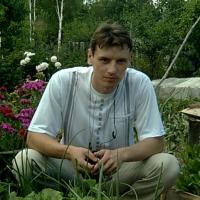Žinutės: 8
Kalba: Esperanto
medwards (Rodyti profilį) 2008 m. kovas 22 d. 20:39:15
I began the book "Teach Yourself Esperanto" yesterday. I noticed in the very first chapter what seem to be irregularities in this "regular" language.
First, was the phrase "consists of" as konsistas el, instead of konsistas de
Also, how come the suffix 'ej' as a place of action or object (dormoĉambro, automobilejo, etc.) but kitchen is kuirejo as opposed to manĝejo?
Would manĝejo be acceptable--or dormejo for bedroom instead of dormoĉambro?
Curious about this before I go further.
Thanks
Mike
Filu (Rodyti profilį) 2008 m. kovas 22 d. 20:55:00
Viaj demandoj:
• Kuirejo estas ejo, kie ni kuiras: en ĝi kutime troveblas forno, fridujo, tranĉiloj, ebenaĵoj ktp.
• Manĝejo estas ejo, kie ni manĝas: en ĝi oni povas trovi seĝojn kaj tablon en kelkaj landoj, aŭ alie iaspeca vasta malferma loko kie familianoj povas kune sidi kaj manĝi.
• Dormejo ja eblas. Oni povas laŭplaĉe uzi "dormejo" priparolante pri dormĉambro, sed dormejo ankaŭ povus esti io tute malsama al dormĉambro: ĉiu loko, kiun iu opinias dormebla estas dormejo, ĉu musklito dolĉa sub arbo en somermezo, ĉu flughavenseĝo malkomforta kiam nenio ĉirkaŭe pli indas ol ĝi por dormi, ĉu io alia.
• Mi ne scias kiel ekspliki kial estas bona "konsistas el", sed tute certe tio estas bona Esperanto.
Miland (Rodyti profilį) 2008 m. kovas 22 d. 21:09:20
medwards:HelloHello Medwards
I began the book "Teach Yourself Esperanto" yesterday..
Note Filu's message. It will be good practice for you reading the E-o text, when you feel ready for it!
I myself began E-o with TYE before discovering this website (I still finished the book, as part of a correspondence course run by the EAB). To try and deal with your questions in order:
The two main uses of konsisti in E-o are with el (indicating various parts) and en (indicating the main part). The first use in TYE is therefore quite in order.
The kitchen is the place for cooking - kuiri - hence kuirejo.
Manĝejo is certainly an eating place, but that could apply to a restaurant. So for a house manĝoĉambro is preferred, which I note is in the text. Again, dormejo could apply to any sleeping place like a dormitory in an institution, so for the bedroom in a private home dormoĉambro is preferred.
Good luck with your E-o studies. You may rest assured that TYE is a well-established textbook which will not let you down. Other good ones include David Richardson's Esperanto - Learning and using the International language and John Wells' Jen Nia Mondo (in two parts), with audio CD material - however one of the participants in Part 1 has a clearly British accent.
In any case, if you are able to study with a correspondence tutor, so much the better.
The following websites may be useful sources of information:
http://www.esperanto-usa.org/
http://www.tejo.org/aaie/html/information.htm
RiotNrrd (Rodyti profilį) 2008 m. kovas 22 d. 21:48:47
"El" is the Esperanto form of the English "of" that means "out of". "Three out of four dentists recommend..." That kind of "of". It's used when you are talking about groups of things, or parts of things, or sets of things, etc. Since "consists of" is usually followed by a list of parts, "el" is quite appropriate. (It also can mean "out of" in the sense of "I just came out of the house." - "Mi ĵus venis el la domo.")
"De" is more properly translated as "from" or "by". BUT, you will also see it in places where "of" is used in English, because English often substitutes "of" in places where "from" or "by" would work just as well.
On another topic, don't flip out when you encounter irregularities in your studies. Esperanto is not perfectly regular, nor was it meant to be. It's just very regular. The few irregularities you will encounter are minor and easily learned.
As mentioned earlier - please post English questions, comments, etc., in the English language forum. This particular part of the forum is meant for Esperanto-only posts (so that the entire international crowd can participate in the discussions and not have to wade through posts they don't understand - they don't all speak English, after all).

-----
(Jes, Terurĉjo, ni informis la ekverkanton de ĉi tiu fadeno ke ĉi tiu parto de la forumo estas por nur Esperantaj afiŝoj.
 )
) Taciturn_ (Rodyti profilį) 2008 m. kovas 22 d. 22:14:43
Taciturn_ (Rodyti profilį) 2008 m. kovas 23 d. 06:57:43
Filu (Rodyti profilį) 2008 m. kovas 23 d. 19:14:04
Jasminka (Rodyti profilį) 2008 m. kovas 23 d. 20:11:35



